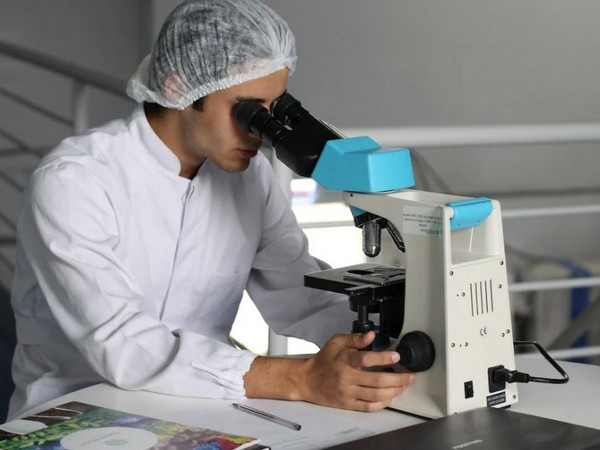Washington DC [US], April 21 (ANI): Neurobiologists using cutting-edge visualisation techniques have revealed how changes across our synapses and neurons unfold.
The findings depict how information is processed in our brain’s circuitry, offering insights for neurological disorders and brain-like AI systems.
How do we learn something new? How do tasks at a new job, lyrics to the latest hit song or directions to a friend’s house become encoded in our brains?
The broad answer is that our brains undergo adaptations to accommodate new information. To follow a new behaviour or retain newly introduced information, the brain’s circuitry changes.
Such modifications are orchestrated across trillions of synapses — the connections between individual nerve cells, called neurons — where brain communication takes place.
In an intricately coordinated process, new information causes certain synapses to get stronger with new data while others grow weaker. Neuroscientists who have closely studied these alterations, known as “synaptic plasticity,” have identified numerous molecular processes causing such plasticity.
Yet an understanding of the “rules” selecting which synapses undergo this process remained unknown, a mystery that ultimately dictates how learned information is captured in the brain.
University of California, San Diego neurobiologists William “Jake” Wright, Nathan Hedrick and Takaki Komiyama have now uncovered key details about this process.
The main financial support for this multi-year study was provided by several National Institutes of Health research grants and a training grant.
As published April 17 in the journal Science, the researchers used a cutting-edge brain visualisation methodology, including two-photon imaging, to zoom into the brain activity of mice and track the activities of synapses and neuron cells during learning activities.
With the ability to see individual synapses like never before, the new images revealed that neurons don’t follow one set of rules during episodes of learning, as had been assumed under conventional thinking.
Rather, the data revealed that individual neurons follow multiple rules, with synapses in different regions following different rules. These new findings stand to aid advancements in many areas, from brain and behaviour disorders to artificial intelligence.
“When people talk about synaptic plasticity, it’s typically regarded as uniform within the brain,” said Wright, a postdoctoral scholar in the School of Biological Sciences and first author of the study.
“Our research provides a clearer understanding of how synapses are being modified during learning, with potentially important health implications since many diseases in the brain involve some form of synaptic dysfunction.”
Neuroscientists have carefully studied how synapses only have access to their own “local” information, yet collectively they help shape broad new learned behaviours, a conundrum labelled as the “credit assignment problem.”
The issue is analogous to individual ants that work on specific tasks without knowledge of the goals of the entire colony.
The new information offers promising insights for the future of artificial intelligence and the brain-like neural networks upon which they operate.
Typically, an entire neural network functions on a common set of plasticity rules, but this research infers possible new ways to design advanced AI systems using multiple rules across singular units.
For health and behaviour, the findings could offer a new way to treat conditions including addiction, post-traumatic stress disorder and Alzheimer’s disease, as well as neurodevelopmental disorders such as autism. (ANI)
Disclaimer: This story is auto-generated from a syndicated feed of ANI; only the image & headline may have been reworked by News Services Division of World News Network Inc Ltd and Palghar News and Pune News and World News
HINDI, MARATHI, GUJARATI, TAMIL, TELUGU, BENGALI, KANNADA, ORIYA, PUNJABI, URDU, MALAYALAM
For more details and packages













